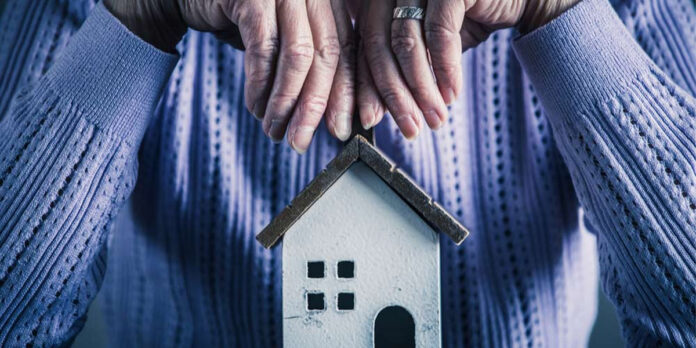How to design your home Dementia-friendly?
As a caregiver for someone with dementia or Alzheimer’s, every day can seem like a challenge. A challenge right from the beginning of your day, when you walk into a living space that hasn’t adapted to accommodate your loved one’s changing needs?
Designing or rather re-designing your loved one’s home, room by room, can make a world of a difference that reassures a safe and friendly living space for the senior adult with dementia.
In reality, it is not that big of a deal to modify a space to make it dementia-friendly. When your home incorporates the elements of dementia-friendly design, your loved one’s risk of falling is reduced, his memory is aided, and he has more freedom to use his own abilities. A good design helps your loved one thrive.
The symptoms of a senior living with dementia could be that memory loss, confusion pertaining to their environment, and difficulty in absorbing and learning new things; someone with dementia can completely forget where they are, where things are, and how things work.
Although it’s not advisable to make drastic changes to a home, there are a few simple things you can do that may be of help to someone with dementia to continue living independently at home.
Better lighting
Most people with dementia, and older people in general, benefit from better lighting in their home – it can help to avoid confusion and reduce the risk of falls.
Try to reduce glare, shadows and reflections.
Lighting should be bright, even and natural (as much as possible). Increase natural light during the day by making sure:
- curtains are open
- nothing is blocking the windows, such as unnecessary nets and blinds
- hedges and trees are cut back if they block out sunlight
Lighting is particularly important on the stairs and in the toilet. Light switches should be easy to reach and use.
Automatic light sensors can be a good addition. Lights come on automatically when someone passes the sensor.
It is also important to make sure the bedroom can be made dark at night, to help with sleep.
As dementia is more common among older people, it’s important to have regular eye tests so that any problems can be spotted and treated.
Reduce excess noise
Carpets, cushions and curtains absorb background noise. If you have laminate or vinyl flooring, simply walking across the room can be very noisy. If the person with dementia wears a hearing aid, it will magnify these sounds which can be uncomfortable.
Reduce background noise by turning the television or radio off if nobody is paying attention to it.
It’s important to have regular hearing checks, even if the person with dementia has hearing aids fitted.
People with dementia can have their symptoms made worse by problems with sight and hearing together (known as deafblindness or dual sensory loss). Read more information about older people with sight and hearing loss from the charity Sense.
Safer flooring
Try to avoid rugs or mats on the floor, as some people with dementia may become confused and think the rug or mat is an object that they need to step over, which could lead to trips or falls.
Avoid shiny or reflective flooring, as this may be perceived as being wet, and the person with dementia may struggle to walk over it.
The best flooring to choose is matt and in a colour that contrasts with the walls. It might help to avoid colours that can be mistaken for real things, such as green (grass) or blue (water).
Contrasting colours
Dementia can affect how well someone can tell the difference between colours. Choose:
- contrasting colours on walls and floors
- furniture and furnishings in bright or bold colours that contrast with the walls and floors, including beds, tables and chairs
- contrasting colours for doors and banisters to make them stand out
- a toilet seat in a contrasting colour to the rest of the bathroom
- crockery in contrasting colours to the tablecloth or table to help define the edges of dishes
Avoid bold patterns and stripes as they can be confusing and disorientating.
Reflections can be troubling
Check mirrors and cover or remove them if they’re likely to cause confusion in the person with dementia. They may be distressed if they don’t recognise themselves.
Similarly, it can help to close the curtains in the evening so they can’t see their reflection in the window glass.
Labels and signs can help someone get around
Labels and signs on cupboards and doors can be helpful, such as a toilet sign on the bathroom or toilet door. Signs should be:
- Clear and neutral colours
- Appropriate pictures with a contrasting background
- Placed slightly lower than normal as older people tend to look downwards.
It may also help to put photos on cupboards and drawers to show what’s inside them.
Alternatively, see-through cupboard doors can be a great help to someone with dementia, as they can then see what’s inside from the outside.
Dementia-friendly household items
It’s possible to get products for the home that are specifically designed for people with dementia. For example:
- Clocks with large LCD display showing the day, date and time.
- Telephones with bigger buttons.
- Reminder devices that give an audio prompt to help people remember to take medicines or lock the front door.
These products are often known as assistive technology. Apps for smartphones and tablets can also help. The Alzheimer’s Society has more information about using technology to help with everyday life.
There are several websites that sell daily living aids, such as the Alzheimer’s Society online shop and Living made easy.
You may find that the person you care for prefers traditional-style fixtures and fittings, such as taps, a toilet flush or bath plugs.
Ensure that any tables are stable and have round, smooth edges. They should be at a suitable height, so that food and drink can be seen and a wheelchair can fit underneath if needed.
Athulya Home Healthcare in Chennai provides resident-centered dementia care with arguably exceptional geriatric counselling within the comfort of the resident’s home. Athulya Home Healthcare guides seniors at every step with thoughtful and tender treatment. A temple of healing for your silver-haired friends, Athulya attempts to fulfill healthier aging through individualized care by providing a positively inundated space.













